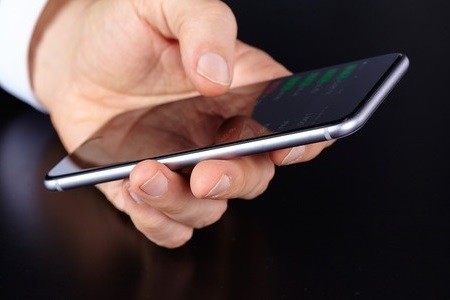
Growing up with the dawn of the Internet Age, millennials are the first generation to have a wealth of information available to them instantaneously. While their parents and grandparents would spend time in libraries doing research, millennials grew up with droves of information and more at their fingertips.
Their expectation of immediate access and speedy service isn’t limited to information.
This group is always on the go, and doesn’t like to be made to wait. As they come to represent an increasingly larger share of the healthcare market, their expectations are going to force the industry to rethink how it serves this cohort.
Intelligent Medical Objects (IMO) tells us that the “stereotype about millennials needing immediate gratification is not entirely false.” Particularly when it comes to healthcare, this generation is looking for efficiency. While they do not expect instantaneousness in every aspect of their lives, this generation does want efficiency when it comes to healthcare. In fact, according to this article, “many of these young adults do not even take the time to see their primary care physicians and instead rely on more immediate services.” These immediate services come in the form of online research to self-diagnose and self-treat, as well as more time-efficient in-person interactions with healthcare professionals.
When it comes to information, millennials will often turn first to the internet they grew up with to determine what ails them. But that doesn’t mean healthcare providers can’t still find a way to provide value. Healthcare organizations have an opportunity to become the trusted source of information by ensuring their communication materials are up-to-date, relevant and easily accessible—online and off.
In terms of in-person care, millennials don’t want to spend time sitting in a waiting room at a hospital or clinic for a doctor, or nurse, that is invariably running late. IMO cites data from a PNC Healthcare report which found that only 61 percent of millennials routinely visit a regular doctor, compared to 80 percent of baby boomers. If this group does seek in-person medical attention, they want an option that’s faster and more convenient than the traditional model.
In an article for HFA titled, “7 Ways Millennials are Changing the Healthcare Industry (And What it Means to You),” Senior Research Manager Kelly Wanstrath writes: “Millennials have been called the ‘drive-through generation’ because they want healthcare delivered more quickly and efficiently. While older generations see primary care physicians as their first line of defense against non-critical health concerns, Millennials see them as a last resort.” This generation, according to Wanstrath, prefer retail and acute care clinics to traditional doctor visits.
As millennials continue to make up a greater share of the healthcare market, providers are going to have to adapt to this cohort’s particular preferences and habits if they want to stay competitive. If not, these millennials will simply turn elsewhere for care.
Are you prepared to serve these emerging preferences for faster, more immediate, healthcare delivery?
Visionary marketing and PR leader blending consulting and corporate experience. A deep knowledge of all aspects of the healthcare and hospital industry. Life-long advocate for bringing the voice of... Read more
Many businesses – hospitals and other healthcare organizations included – see their customer or patient relationships as the most valuable relationships in the organization. ...read more
Corporate culture – an organization’s values, norms, beliefs and behaviors that help define the business – is influenced by many factors: the type of industry the ...read more
Healthcare marketers sometimes feel as though they’re caught up in a never-ending, and vicious cycle of being on the hook to bring more patients through the door, only to hear ...read more
While the veracity of human-caused climate change may remain a debatable topic in U.S. politics, businesses around the country – indeed around the globe – are taking steps ...read more